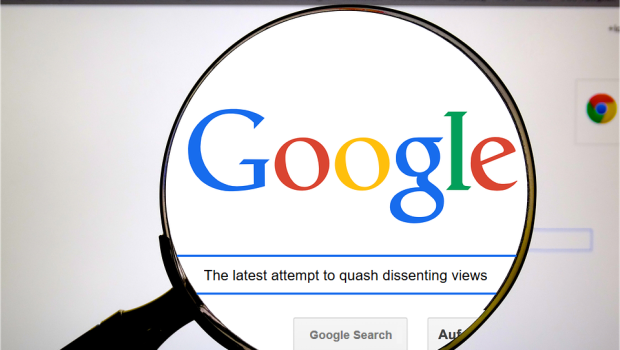Fake news: Google’s latest witch hunt on discourse
Google has announced plans to clamp down on “fake news” sites due to their purported influence on the outcome of the 2016 U.S. presidential election in what appears to be another move to suppress views that counter their own.
Tech giants have received “a backlash over the role they played in the U.S. presidential election by allowing the spread of false and often malicious information that might have swayed voters toward Republican candidate Donald Trump”, according to Reuters.
Google recently told the BBC that “we did not get it right” on algorithms that dared showed alternative news websites’ stories high up on their search lists and that “we will work to fix it”, said the company’s chief executive Sundar Pichai.
Yet, this is not the first time Google have sought to forcefully control the public mindset, with its recent Orwellian ‘ministry of truth’ one of many such instances, which ranks the internet not by popularity but based only on what the company deems to be factual.
The cozy relationship between Google executive chairman Eric Schmidt with the Democratic Party is well-documented and raises further alarm bells as to the sudden need to control what the public is reading.
Schmidt openly supported Barack Obama, funding him to the tune of over $800,000, and the pair worked extremely closely over the course of his presidency.
In 2014, Schmidt drew up a campaign plan for Hillary Clinton, a year before she announced she was running for president, as revealed by WikiLeaks and was interested in assuming the role of “head outside advisor”.
Alphabet Inc, the parent company of Google, co-founded by Schmidt, contributed $1.3million to the 2016 Hillary Clinton campaign

In late 2015, Quartz wrote about how a startup funded by Schmidt had the aim of cultivating elite engineering talent to help her win in 2016.
Yet more revealing is that Alphabet Inc, the parent company of Google, co-founded by Schmidt, contributed $1.3million to the 2016 Hillary Clinton campaign. And most recently, he was pictured at a Hillary rally wearing a campaign “staff” badge.

Additionally, the origins of the list of ‘fake news’ sites and just what message this sends is exactly what those on the left have been accused of during recent big elections; that their inability, or disinterest, in finding out the concerns of those who share different opinions is the reason for their undesired outcomes.
The list of 100 such sites doing the rounds on social media was produced by a self-proclaimed feminist activist, and seems to directly target conservative websites.
While there are plenty of questionable sites on the list, two prominent conservative outlets whose articles and videos gain millions of hits also feature – Infowars and Breitbart. This is not to claim that they do not exaggerate a story from time to time, but to single out these massively influential outlets is an instant red-flag for those conscious of a liberal aim to shut down any dissenting opinion.
The fact that this target of conservative sites comes after an election campaign which saw disgraceful coverage from the liberal media, with the likes of Vox, Slate and the Huffington Post, who too earn millions of views, smeared any comment made by Trump while putting a positive spin on anything Hillary shows that this attempted suppression of sites has a clear agenda.
This list is made more concerning after an election which revealed how big mainstream media outlets had a tight-knit relationship with the Clinton campaign, as revealed by WikiLeaks.
While filtering out fake news is indeed a necessary challenge, the fact that the targets of Google’s witch hunt overwhelmingly belong to the opposite side of the company’s political affiliations, while mainstream media channels which are repeatedly found guilty of spreading false information are not only given a free pass but boosted in the search engine’s rankings, implies bias on the basis of ideology rather than accuracy.





